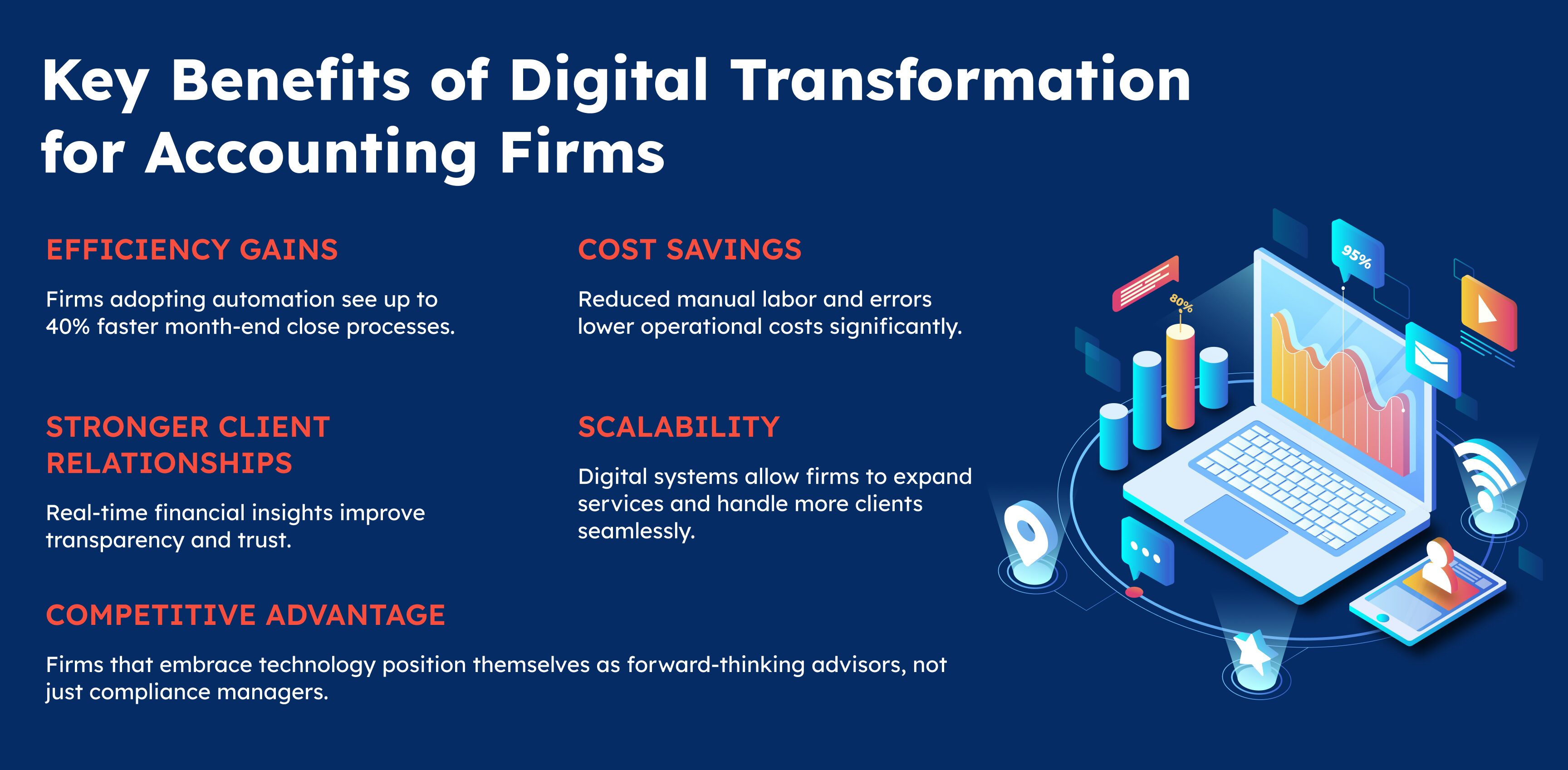In today’s hyper-connected world, digital transformation is no longer optional for accounting firms—it’s a necessity. With client expectations evolving, regulatory demands intensifying, and competition growing fiercer, firms that embrace digital solutions stand to gain significant advantages. But the question remains: where should accounting firms begin their digital transformation journey?
At Xerosoft Global, we’ve seen first-hand how a clear roadmap, paired with the right technologies, can accelerate efficiency, strengthen client relationships, and open new growth opportunities.
Why Digital Transformation Matters for Accounting Firms
According to a 2024 PwC survey, 74% of accounting firms worldwide have prioritized digital transformation in their growth strategies. Meanwhile, Deloitte reports that firms using cloud and automation tools experience a 30–40% increase in efficiency compared to those still using traditional workflows.
Digitalization isn’t just about replacing old systems—it’s about reimagining how accounting firms deliver value. From AI-powered bookkeeping to client portals that provide real-time insights, the digital-first approach enhances both productivity and customer satisfaction.
Where to Start: A Step-by-Step Roadmap

1. Adopt Cloud-Based Accounting Platforms
Cloud solutions such as QuickBooks Online, Xero, and Sage streamline processes, allowing secure access to financial data anytime, anywhere. Firms using cloud accounting report 82% faster collaboration with clients (Source: Accounting Today).
Benefit: Real-time visibility for both accountants and clients, reducing delays in reporting and compliance.

2. Leverage Automation in Bookkeeping & Tax
Automation tools reduce manual data entry, minimize human error, and free accountants to focus on advisory services. A McKinsey study found that up to 45% of repetitive accounting tasks can be automated with current technologies.
Benefit: Enhanced accuracy and cost savings while empowering teams to focus on higher-value strategic planning.

3. Implement Data Analytics for Strategic Insights
Digital transformation isn’t just about digitizing—it’s about using data smarter. Advanced analytics tools help identify cash flow gaps, predict financial risks, and improve decision-making. According to Gartner, firms using predictive analytics improve client retention by 25% on average.
Benefit: Better business insights, improved forecasting, and stronger advisory capabilities.

4. Strengthen Cybersecurity Practices
As more sensitive client data moves online, cybersecurity becomes a top priority. Cybercrime is projected to cost businesses $10.5 trillion annually by 2025 (Cybersecurity Ventures). Accounting firms must adopt encryption, multi-factor authentication, and secure cloud storage.
Benefit: Builds client trust and ensures regulatory compliance in data protection.

5. Upskill Teams for Digital Readiness
Technology alone doesn’t guarantee transformation—people do. According to an ACCA study, 63% of accountants believe digital skills training is essential to remain competitive.
Benefit: A future-ready workforce that can adapt to changing technologies and client demands.


Conclusion
The journey toward digital transformation doesn’t have to be overwhelming. By starting with cloud adoption, embracing automation, leveraging data analytics, prioritizing cybersecurity, and investing in staff training, accounting firms can build a sustainable path to growth.
At Xerosoft Global, we help firms navigate these changes with tailored solutions that drive efficiency, strengthen client trust, and create long-term value.

